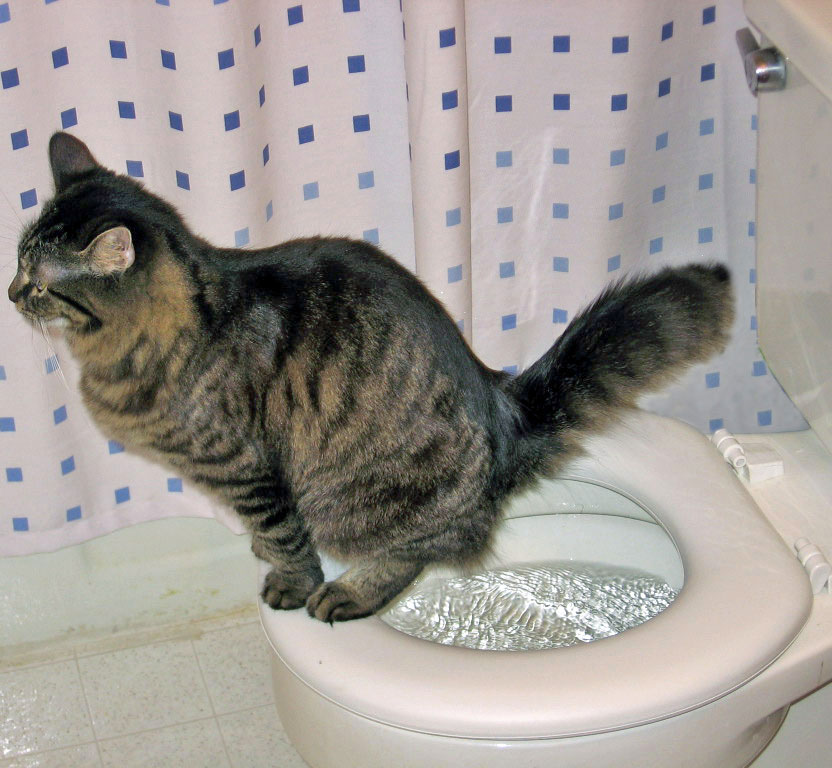Avoid Bathroom Emergencies: Never Flush Cat Poop Down Your Toilet - Professional Advice
Avoid Bathroom Emergencies: Never Flush Cat Poop Down Your Toilet - Professional Advice
Blog Article
We've found this post about How to Dispose of Cat Poop and Litter Without Plastic Bags down the page on the internet and thought it made good sense to talk about it with you on this site.

Introduction
As feline proprietors, it's necessary to be mindful of just how we get rid of our feline friends' waste. While it might appear hassle-free to flush pet cat poop down the bathroom, this practice can have destructive repercussions for both the setting and human health.
Alternatives to Flushing
Luckily, there are more secure and a lot more accountable ways to take care of cat poop. Consider the adhering to choices:
1. Scoop and Dispose in Trash
The most typical technique of taking care of pet cat poop is to scoop it right into an eco-friendly bag and toss it in the garbage. Make sure to utilize a committed clutter inside story and deal with the waste without delay.
2. Use Biodegradable Litter
Select naturally degradable cat trash made from materials such as corn or wheat. These litters are eco-friendly and can be safely disposed of in the trash.
3. Bury in the Yard
If you have a lawn, think about hiding pet cat waste in a marked location far from veggie yards and water resources. Make certain to dig deep sufficient to stop contamination of groundwater.
4. Mount a Pet Waste Disposal System
Purchase a pet waste disposal system specifically made for cat waste. These systems make use of enzymes to break down the waste, decreasing smell and ecological impact.
Wellness Risks
Along with ecological worries, flushing cat waste can likewise present health risks to people. Cat feces may contain Toxoplasma gondii, a parasite that can cause toxoplasmosis-- a potentially serious disease, specifically for expectant females and individuals with damaged body immune systems.
Ecological Impact
Flushing feline poop introduces damaging microorganisms and bloodsuckers into the water supply, positioning a considerable threat to aquatic ecosystems. These pollutants can adversely impact marine life and compromise water high quality.
Conclusion
Liable family pet possession extends beyond offering food and shelter-- it also entails appropriate waste monitoring. By avoiding purging pet cat poop down the bathroom and selecting alternate disposal techniques, we can lessen our ecological footprint and shield human wellness.
Why You Should Never Flush Cat Poop Down the Toilet
A rose by any other name might smell as sweet, but not all poop is created equal. Toilets, and our sewage systems, are designed for human excrement, not animal waste. It might seem like it couldn’t hurt to toss cat feces into the loo, but it’s not a good idea to flush cat poop in the toilet.
First and foremost, assuming your cat uses a litter box, any waste is going to have litter on it. And even the smallest amount of litter can wreak havoc on plumbing.
Over time, small amounts build up, filling up your septic system. Most litter sold today is clumping; it is made from a type of clay that hardens when it gets wet. Ever tried to scrape old clumps from the bottom of a litter box? You know just how cement-hard it can get!
Now imagine just a small clump of that stuck in your pipes. A simple de-clogger like Drano isn’t going to cut it. And that means it’s going to cost you big time to fix it.
Parasitic Contamination
Believe it or not, your healthy kitty may be harboring a nasty parasite. Only cats excrete Toxoplasma in their feces. Yet it rarely causes serious health issues in the cats that are infected. Most people will be fine too if infected. Only pregnant women and people with compromised immune systems are at risk. (If you’ve ever heard how women who are expecting are excused from litter cleaning duty, Toxoplasma is why.)
But other animals may have a problem if infected with the parasite. And human water treatment systems aren’t designed to handle it. As a result, the systems don’t remove the parasite before discharging wastewater into local waterways. Fish, shellfish, and other marine life — otters in particular — are susceptible to toxoplasma. If exposed, most will end up with brain damage and many will die.
Depending on the species of fish, they may end up on someone’s fish hook and, ultimately on someone’s dinner plate. If that someone has a chronic illness, they’re at risk.
Skip the Toilet Training
We know there are folks out there who like to toilet train their cats. And we give them props, it takes a lot of work. But thanks to the toxoplasma, it’s not a good idea.

Hopefully you enjoyed our excerpt about Don’t flush cat feces down the toilet. Thank you for taking time to read our short article. Be sure to take a moment to share this blog posting if you liked it. Many thanks for your time. Please stop by our site back soon.
Schedule A Service Call Report this page